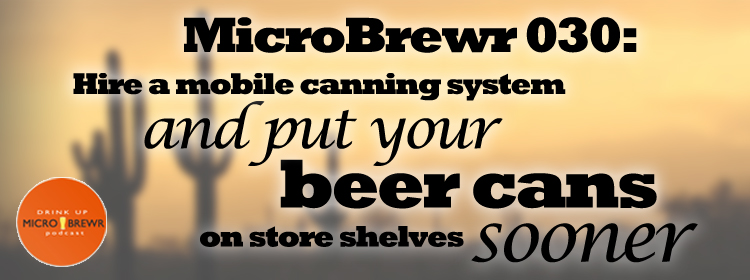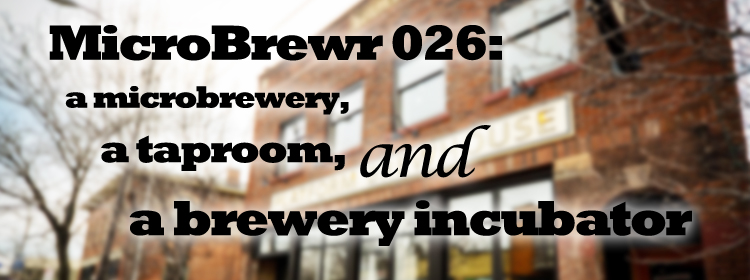MicroBrewr 033: Wastewater treatment solutions for a craft brewery
Podcast: Play in new window | Download | Embed
Subscribe: RSS
Wastewater treatment is a key issue for a craft brewery. John Mercer from Brewery Wastewater Design in Montrose, Colorado has more than a decade of experience. He shares wastewater treatment solutions for a craft brewery.
For every gallon of beer produced, a typical brewery uses 7 gallons of water. If your municipal wastewater treatment plant can’t handle it, you could be facing high fees for wastewater treatment.
Brewery wastewater can fall into one of several categories:
- Floor drains in the brewery, which contain alcohol, sugars, and other contaminants.
- Kitchen drains, which includes grease.
- Restrooms, which typically go the sewage treatment plant.
- Side stream, which is a way to divert extremely concentrated wastewater such as spent yeast, waste beer, fermenter blow-off, and trub.
If your brewery is in an area that has municipal sewage service, you might not have to do anything. If you’re in the county with no sewage service, you’ll likely have to build your own brewery wastewater treatment infrastructure.
Solutions will vary depending on your brewery wastewater characteristics, or who designs your system.
Diverting the very concentrated sources through a “side stream,” could reduce the contaminants in your wastewater by 90%. Which could mean reduced fees for treatment.
Key questions to ask:
- Is the wastewater facility at capacity?
- How much would the fees cost?
- Does your consultant have experience designing systems for breweries or other food manufacturers?
SPECIAL BONUS:
Ask John any question about wastewater treatment for your brewery.
Leave your questions in the comments section below.
John will keep watching the comments for the next 30 days to answer as many of your questions as he can.
Be sure to connect with Brewery Wastewater Design and thank John for being on the show and for helping us out with questions.
UPDATE: Thirty days is up, John is no longer monitoring the questions here. You can still reach him through the links below. Thanks for your great questions everyone!
Tweetable:
“I came back to brewery work because the people are the greatest and the industry is the greatest.” [Tweet This]
Listener question:
From Megan Tolbert: How low environmental impact is your business?
Book recommendation:
- Beyond the Pale: The Story of Sierra Nevada Brewing Co. by Ken Grossman.
Check out the entire list of recommended books, click here.
An upcoming beer style:
Sour beer
Other resources:
- Your city public works department.
- Your county environmental services department.
- Brewery Wastewater 101 by John Mercer, Brewery Wastewater Design.
- Water and Wastewater: Treatment/Volume Reduction Manual by Brewers Association.
- The growing challenges of brewery wastewater systems by Keith Gribbins, Craft Brewing Business, September 6, 2013.
- How side streaming your brewery wastewater can save you money, John Mercer, MicroBrewr, December 11, 2014.
You can reach John Mercer and Brewery Wastewater Design at:
Support MicroBrewr
Help keep MicroBrewr on the air. CLICK HERE for ways you can help.






